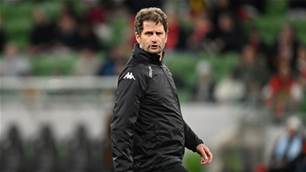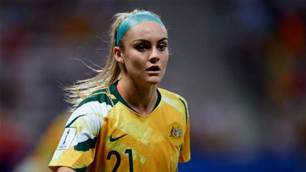Studying abroad in Spain, any night of the week I could walk around the city and find bars with people watching football.
They are all holding Australian flags and I learn that this patriotic bunch are actually Portuguese locals.
They met the Matildas at the Algarve Cup in 2017 and assure me they’ll be loyal to their heroes.
Speaking to the fans, it is clear that they all see something beautiful in the way the Matildas work as a cohesive group.
Tameka Butt, the integral Matildas midfielder also observes a difference in the women’s game.
“I definitely think there is more of a connection between fans and players,” she said.
“I don’t know whether that’s credited to the way we connect through social media or if it’s a certain struggle that the fans see in their lives.”
The women at the Algarve Cup have come because watching women play sport is powerful.
Not because they can do the same things men can but because despite the fact that they aren’t afforded the support or the money, they live doing something they love.
It is a visceral embodiment of the struggle all women face and a visual representation of female strength.
“That’s what the Matildas are emulating right now, we’re a team that’s really strong and a collective female group…that’s a drawcard,” Butt said.
In World Cup commercials, football has always been something that’s described as bringing people and cultures together.
Football is conveyed through the images of boys kicking a soccer ball on the beach, in the school playground and eventually through men in a sports bar.
In many ways, this ‘coming together’ has always seemed like false advertisement.
Women are scarcely included in this image.
The building mainstream support of the Matildas is exciting and long overdue but the quieter revolution in how young women see themselves and find community within the sporting world is what’s different to the atmosphere in European bars.
Football can be a universal language, and with women included it can communicate something far deeper.
Related Articles

'Timing not right': Montemurro's verdict on Matildas vacancy

Matildas: 'Fourth at the Olympics is honestly the worst place you could come'
.jpg&h=172&w=306&c=1&s=1)












